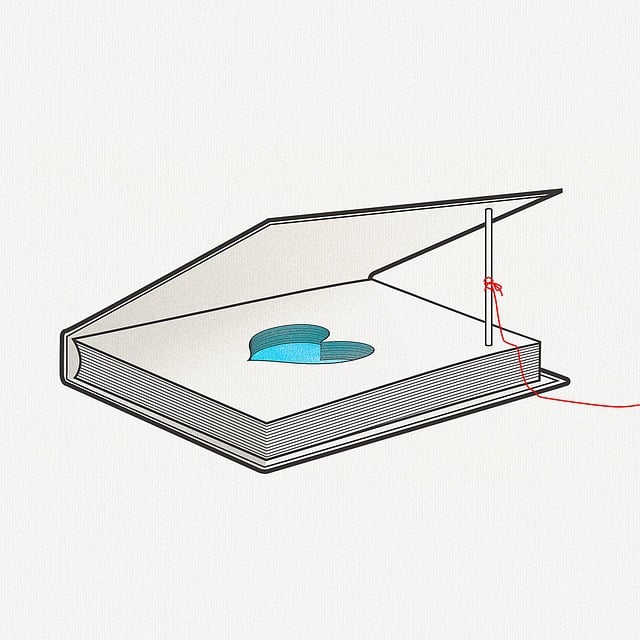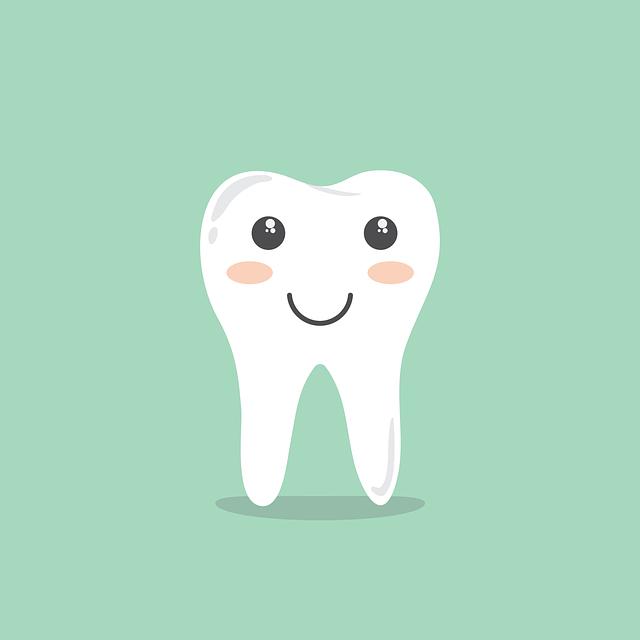Smoking and Dental Health: A Comprehensive Guide
Welcome to our comprehensive guide on smoking and dental health. In this article, we will delve into the intricate relationship between tobacco use and its impact on the health of your teeth and gums. Whether you are a smoker looking to understand the potential oral consequences of your habit or a concerned non-smoker seeking to broaden your knowledge, we have compiled a wealth of information to help you make informed decisions. Prepare to navigate through the nuances of smoking and dental health as we explore the scientific research, potential risks, and preventive measures associated with this prevalent habit. Let’s embark on this journey together and shed light on the vital connection between smoking and your oral well-being.
1. The Link Between Smoking and Dental Health: Unveiling the Facts
Smoking has long been recognized as a major risk factor for various health issues, and dental health is no exception. The detrimental effects of smoking on oral health are well-documented and cannot be ignored. Here are some key facts that unveil the link between smoking and dental health:
- Increased risk of gum disease: Smoking weakens the immune system, making it harder for the body to fight off infections. This puts smokers at a higher risk of developing gum disease, characterized by swollen, bleeding gums and bad breath.
- Delayed healing: Smoking hinders the body’s ability to heal itself, which can have serious implications for dental procedures such as tooth extractions or implants. Smokers may experience slower healing times and an increased risk of complications.
- Stained teeth and bad breath: The chemicals present in tobacco products have a tendency to stain teeth, leading to a yellowed or discolored appearance. Additionally, smoking can cause chronic bad breath, as the smoke particles linger in the mouth and lungs.
It is crucial for smokers to understand the significant impact their habit can have on their dental health. Quitting smoking not only improves overall health but also plays a vital role in maintaining oral hygiene. By breaking the link between smoking and dental health, individuals can pave the way for healthier gums, stronger teeth, and a brighter smile.

2. Understanding the Impact of Smoking on Oral Hygiene and Gum Disease
Smoking has a profound impact on oral hygiene and is a major contributing factor to the development and progression of gum disease. It is important to understand the detrimental effects smoking can have on oral health in order to make informed decisions about tobacco use and prioritize oral hygiene.
Here are some key points to consider:
- Increased risk of gum disease: Smoking weakens the immune system, making it more difficult for the body to fight off infections, including gum disease. Smokers are twice as likely to develop gum disease compared to non-smokers.
- Delayed healing: Smoking hinders the body’s ability to heal, which can further exacerbate gum disease. It impairs blood flow to the gums, slowing down the healing process and making it harder for the gums to repair themselves.
- Reduced effectiveness of treatments: Smokers who undergo gum disease treatments, such as scaling and root planing, are less likely to respond positively to these interventions. Smoking can undermine the success of these procedures and increase the risk of disease recurrence.
- Increased plaque and tartar buildup: Smoking promotes the accumulation of plaque and tartar on teeth, leading to an increased risk of tooth decay and gum inflammation. The toxins in tobacco smoke also damage the soft tissues in the mouth, contributing to gum recession and tooth loss.
is crucial in order to make informed choices for maintaining optimal oral health. Quitting smoking or avoiding tobacco use altogether can significantly improve oral hygiene and reduce the risk of gum disease and associated complications.

3. Smoke and Decay: How Cigarette Smoking Affects Tooth Cavities
Smoking has long been associated with a range of health problems, but its impact on dental health is often overlooked. Cigarette smoking not only stains teeth and causes bad breath, but it also significantly affects tooth cavities. Here are some ways in which smoking can worsen tooth decay:
- Reduced saliva production: Smoking reduces saliva flow, which plays a crucial role in maintaining oral health. Saliva helps neutralize acids, remove food particles, and prevent the buildup of harmful bacteria. With reduced saliva production, the mouth becomes more susceptible to tooth decay.
- Increased plaque formation: Smoking promotes the growth of plaque on teeth. Plaque is a sticky film of bacteria that accumulates on the tooth surface. It produces acids that attack tooth enamel, leading to cavities. Smokers tend to have more plaque buildup than non-smokers, making them more prone to dental decay.
- Delayed healing: Smoking affects the body’s ability to heal itself, including the healing of dental cavities. It reduces blood flow to the gums and oral tissues, prolonging the recovery process. This delay in healing can worsen existing cavities and make it harder for the body to repair damaged tooth enamel.
It is important to understand that smoking not only harms your overall health but also has a direct impact on your oral health. Quitting smoking can significantly reduce the risk of tooth decay and improve your dental well-being. Regular dental check-ups and maintaining good oral hygiene practices are essential in combating the adverse effects of smoking on tooth cavities.

4. The Hidden Dangers: Smoking and its Role in Oral Cancer
Smoking is a habit that poses numerous hidden dangers, especially when it comes to oral cancer. The harmful substances present in cigarettes and other tobacco products can greatly increase the risk of developing this deadly disease. Here are some key points to consider:
1. Tobacco smoke contains over 7,000 chemicals, including at least 70 known to cause cancer. These chemicals can damage the DNA in cells, leading to the formation of cancerous tumors in the oral cavity.
2. Smoking is one of the leading causes of oral cancer. Studies have shown that smokers are six times more likely to develop oral cancer compared to non-smokers.
3. The risk of oral cancer increases with the duration and intensity of smoking. Long-term smokers are at a significantly higher risk than those who have recently taken up the habit.
4. Smokeless tobacco, such as chewing tobacco and snuff, also increases the risk of oral cancer. These products contain harmful chemicals that can cause cellular changes and lead to the development of cancerous lesions.
5. Secondhand smoke can also contribute to the development of oral cancer. Non-smokers who are regularly exposed to tobacco smoke are at an increased risk of developing this disease.
It is crucial to understand the hidden dangers of smoking and its role in oral cancer. Quitting smoking is the best way to reduce the risk of developing this life-threatening disease. If you or someone you know is struggling to quit, seek professional help and explore various support options available. Remember, a smoke-free lifestyle is not only beneficial for your oral health but also for your overall well-being.

5. A Breath of Fresh Air: Tips to Quit Smoking and Improve Dental Health
Quitting smoking can have a profound impact on your dental health, as well as your overall well-being. Here are some tips to help you kick the habit and improve your oral health:
- Set a quit date: Choose a specific date to quit smoking and stick to it. Having a deadline can help you stay motivated and focused on your goal.
- Seek support: Don’t be afraid to reach out to friends, family, or support groups for assistance. Having a strong support system can make a world of difference when trying to quit smoking.
- Identify triggers: Pay attention to situations or emotions that make you crave a cigarette. By identifying triggers, you can develop strategies to avoid or cope with them.
Furthermore, it’s crucial to take care of your dental health during the quitting process. Here are some additional tips:
- Visit your dentist: Regular dental check-ups are essential, especially when quitting smoking. Your dentist can monitor your oral health and provide guidance or treatment if needed.
- Practice good oral hygiene: Brush your teeth twice a day, floss daily, and use mouthwash to maintain a healthy mouth. These habits can help prevent gum disease and other dental issues.
- Stay hydrated: Drinking plenty of water can help flush out toxins and reduce cravings. It also helps maintain saliva production, which is crucial for oral health.
6. Seeking Professional Help: How Dentists Can Assist in Overcoming Smoking-Related Dental Issues
When it comes to overcoming smoking-related dental issues, seeking professional help from a dentist is crucial. Dentists possess the necessary expertise and resources to address the specific oral health challenges associated with smoking. By consulting a dentist, individuals can receive personalized advice and guidance tailored to their unique needs.
Here are some ways dentists can assist in overcoming smoking-related dental issues:
- Oral Examinations: Dentists can conduct thorough oral examinations to assess the extent of damage caused by smoking. This examination helps identify any oral health issues such as gum disease, oral cancer, or tooth decay that may have arisen due to smoking.
- Treatment Plans: Based on the examination results, dentists can develop comprehensive treatment plans to address smoking-related dental issues. These plans may include professional teeth cleaning, periodontal therapy, restorative procedures, or referral for specialized care.
- Smoking Cessation Support: Dentists can play a crucial role in helping individuals quit smoking. They can provide guidance on smoking cessation methods and recommend resources such as support groups or nicotine replacement therapy.
- Oral Health Education: Through one-on-one consultations, dentists can educate patients about the detrimental effects of smoking on oral health. They can also provide guidance on maintaining proper oral hygiene practices and the importance of regular dental check-ups.
By seeking professional help from dentists, individuals can take significant steps towards overcoming smoking-related dental issues and improving their overall oral health. Dentists are committed to providing the necessary support and expertise needed to help patients achieve a smoke-free and healthier future.
7. Smoke-Free for Life: Maintaining Optimal Dental Health After Quitting Smoking
After successfully quitting smoking, it is crucial to maintain optimal dental health to ensure long-term benefits. Here are some essential tips to help you achieve and sustain a smoke-free lifestyle while keeping your teeth and gums in the best possible condition:
1. Practice good oral hygiene:
- Brush your teeth at least twice a day with fluoride toothpaste.
- Floss daily to remove plaque and food particles between your teeth.
- Use an antimicrobial mouthwash to kill bacteria and freshen your breath.
- Replace your toothbrush every three to four months or sooner if the bristles become frayed.
- Schedule regular dental check-ups and cleanings to detect any potential issues early on.
2. Avoid tobacco use in any form:
- Avoid using any tobacco products, including chewing tobacco and snuff, to minimize the risk of oral health problems.
- Avoid exposure to secondhand smoke, as it can still have detrimental effects on your oral health.
- Be mindful of triggers that may tempt you to start smoking again and find healthier alternatives to cope with stress or cravings.
- Stay hydrated to combat dry mouth, a common side effect of quitting smoking.
- Consider using sugar-free gum or lozenges to help alleviate nicotine cravings while promoting saliva production.
Frequently Asked Questions
Q: What are the common oral health problems caused by smoking?
A: Smoking can lead to a range of oral health issues, including bad breath, stained teeth, gum disease, tooth decay, and even oral cancer.
Q: How does smoking contribute to bad breath?
A: Smoking introduces harmful chemicals into the mouth, which can leave an unpleasant odor. Additionally, smoking can dry out the mouth, reducing saliva production, which further exacerbates bad breath.
Q: What kind of teeth stains can smoking cause?
A: Smoking can cause both extrinsic and intrinsic stains on teeth. Extrinsic stains appear on the outer layer of the teeth and are typically yellow or brown. Intrinsic stains, on the other hand, penetrate the enamel and can be more difficult to remove.
Q: Can smoking really lead to gum disease?
A: Yes, smoking is a major risk factor for gum disease. It weakens the immune system, making it harder for the body to fight off infection. Smoking also restricts blood flow to the gums, preventing proper healing and increasing the likelihood of gum problems.
Q: How does smoking contribute to tooth decay?
A: Smoking affects saliva production, reducing its natural ability to neutralize harmful acids in the mouth. This can lead to an increased risk of tooth decay, as the acids attack the enamel and cause cavities.
Q: Is there a link between smoking and oral cancer?
A: Absolutely. Smoking is one of the leading causes of oral cancer. The harmful chemicals in tobacco can damage the cells in the mouth, leading to the development of cancerous growths.
Q: Can quitting smoking reverse the damage to dental health?
A: While quitting smoking is always beneficial for overall health, it cannot reverse the damage already done to dental health. However, quitting can prevent further deterioration and reduce the risk of developing more severe oral health problems.
Q: Are there any specific dental treatments for smokers?
A: Smokers may require more frequent dental cleanings and check-ups to monitor their oral health. Additionally, certain treatments like teeth whitening may be less effective due to the presence of nicotine stains.
Q: How can smokers maintain good oral health?
A: Maintaining good oral hygiene practices is crucial for smokers. This includes brushing teeth twice a day, flossing regularly, using mouthwash, and visiting the dentist regularly for professional cleanings and check-ups.
Q: Are there any alternatives to smoking that are less harmful to dental health?
A: While quitting smoking altogether is the best option, alternatives such as nicotine replacement therapy or e-cigarettes may be considered. However, it’s important to note that these alternatives still pose risks to oral health and should be used with caution. Consulting with a healthcare professional is advised.
The Conclusion
In conclusion, this comprehensive guide has provided valuable insights into the complex relationship between smoking and dental health. From the adverse effects on oral tissues and gum disease to the heightened risk of oral cancer, it is clear that smoking poses significant threats to our oral well-being. Moreover, we have learned that smoking cessation can lead to remarkable improvements in dental health, including reduced gum inflammation and a decreased risk of tooth loss.
It is essential to note that the negative impact of smoking on dental health extends beyond just smokers themselves. Secondhand smoke has also been linked to an increased risk of oral health problems in non-smokers, emphasizing the importance of creating smoke-free environments.
To maintain optimal dental health, it is crucial to prioritize smoking cessation and adopt a comprehensive oral care routine. Regular dental check-ups, proper oral hygiene practices, and a healthy lifestyle can all contribute to mitigating the harmful effects of smoking.
While quitting smoking may be challenging, acknowledging the profound impact it has on our dental health can serve as a powerful motivator. By making informed decisions and seeking professional support, we can take control of our oral well-being and lead healthier, smoke-free lives.
Remember, your dental health is a reflection of your overall well-being, and by breaking free from the grip of smoking, you are not only safeguarding your teeth and gums but also investing in a brighter and healthier future.






